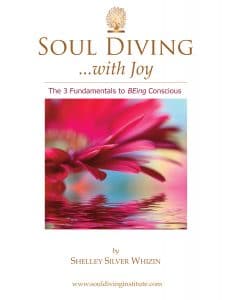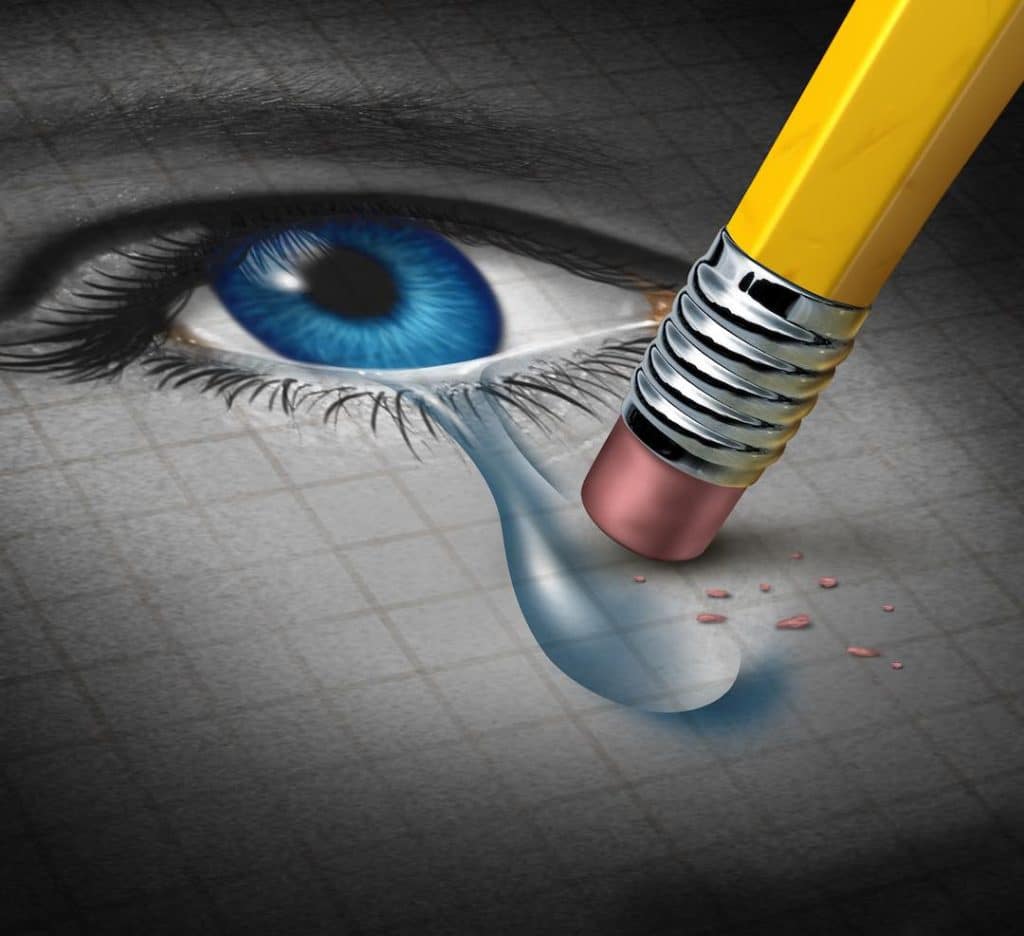
“It takes a special and rare courage to acknowledge
and adequately mourn when the grief is not socially recognized.”
-Kenneth Doka
Introduction
When we lose someone, it is natural to grieve and mourn, but it’s important to understand what grief means. People experience a wide range of losses, deaths, separations, divorces and other changes or transitions. Grief is not always related to just death. We can experience grief for any number of reasons.
Defining Grief
The “Grief Recovery Handbook” defines grief as:
“the normal and natural emotional reaction to loss or change of any kind. Of itself, grief is neither a pathological condition nor a personality disorder.”
Another definition they use is:
“the conflicting feelings caused by the end of or change in a familiar pattern of behavior.”
This basically says that any change that occurs in our familiar behavior patterns can generate the emotional pain that is called grief.
However, when grieving is no longer acknowledged or tolerated in the eyes of society it becomes disenfranchised grief for the griever. Love and loss, regardless of who or what the object of one’s love was, it is profoundly important to the individual who has suffered the loss.
In this article, we explore what “disenfranchised grief”. We do this to learn better ways of recognizing and acknowledging it for the individual who has suffered the loss. There can be no comparisons between the amount, type, or duration of grieving, whether it’s over a lost baby, someone else losing their dog, or a life companion. Some examples of disenfranchised grief in this article will further offer you more awareness of how you can support those who are grieving over what has been deemed by society as not overly worthy or incomparable to other types of loss.
This under-valued grieving comes with social stigma and diminishing views by peers of someone’s loss. Such perception can appear judgmental, critical, and dismissive. This only results in being hurtful and unkind. Society or peers ultimately transmit a sense of disapproval over grieving for something or someone who is not accepted or meets with significant approval. The effect of such behavior results in the griever feeling alone, isolated, judged, and distant from others. The griever does not have the support and understanding that they truly need.
Disenfranchised Grief Definition
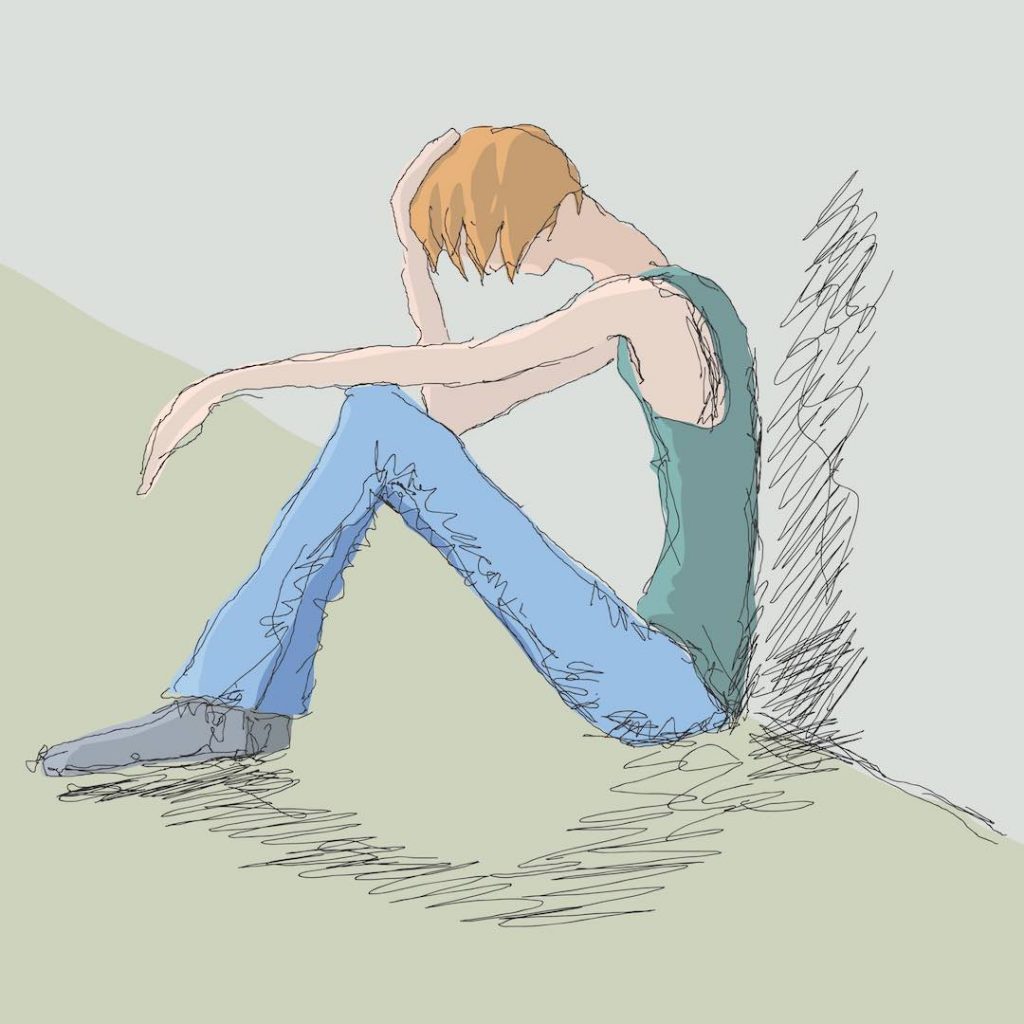 Kenneth Doka coined the term disenfranchised grief in 1985. It is used to express a particular situation when society, or a person’s social environment, or a person’s immediate family and peers do not recognize the individual’s grief as legitimate. Disenfranchised grief also means that the grieving is not openly acknowledged by society, nor is it socially validated or publicly observed, and neither is it accepted or publicly mourned.
Kenneth Doka coined the term disenfranchised grief in 1985. It is used to express a particular situation when society, or a person’s social environment, or a person’s immediate family and peers do not recognize the individual’s grief as legitimate. Disenfranchised grief also means that the grieving is not openly acknowledged by society, nor is it socially validated or publicly observed, and neither is it accepted or publicly mourned.
When you lose someone you care about, you feel like your life is falling apart. This is a time of deep suffering over the loss and a time when you really need to feel the support you deserve. When you don’t have the support and the acknowledgment of your grief, you may then perhaps feel judged over it. You may even feel like your feelings are wrong and out of line. You may end up even judging yourself, asking who are you to feel grief for someone/something that others deem not to be grief-worthy or acceptable?
According to Kenneth Doka, every society has its own norms that frame grieving. This includes expected behavior for feeling, thinking and spiritual expression. These grieving “rules” include, not only how one is to behave, but also how one is to feel and think. They govern what losses one grieves, how one grieves them, who legitimately can grieve the loss, how and to whom others respond with sympathy and support. These norms exist not only as informally expected behaviors but also as “laws”.
Society’s Limiting Grief Rules
Take a look at company policies that extend bereavement leave to certain individuals or by regulations and laws that define who has control of the deceased’s body or funeral arrangements. In the United States and many other societies, these grieving rules limit grief to the deaths of family members. However human beings are complex and experience intimate networks. These include both related and not related relationships, even attachments to animals, places and things.
When someone important to us dies, it represents an end to what has been familiar for us. This forces us to adapt to a new, usually unwanted, reality. I love the analogy of a mobile, where all the pieces are hanging in balance. When one piece is taken away, all the other pieces need to find their “new” place of balance.
Conforming to “Acceptable Grieving”
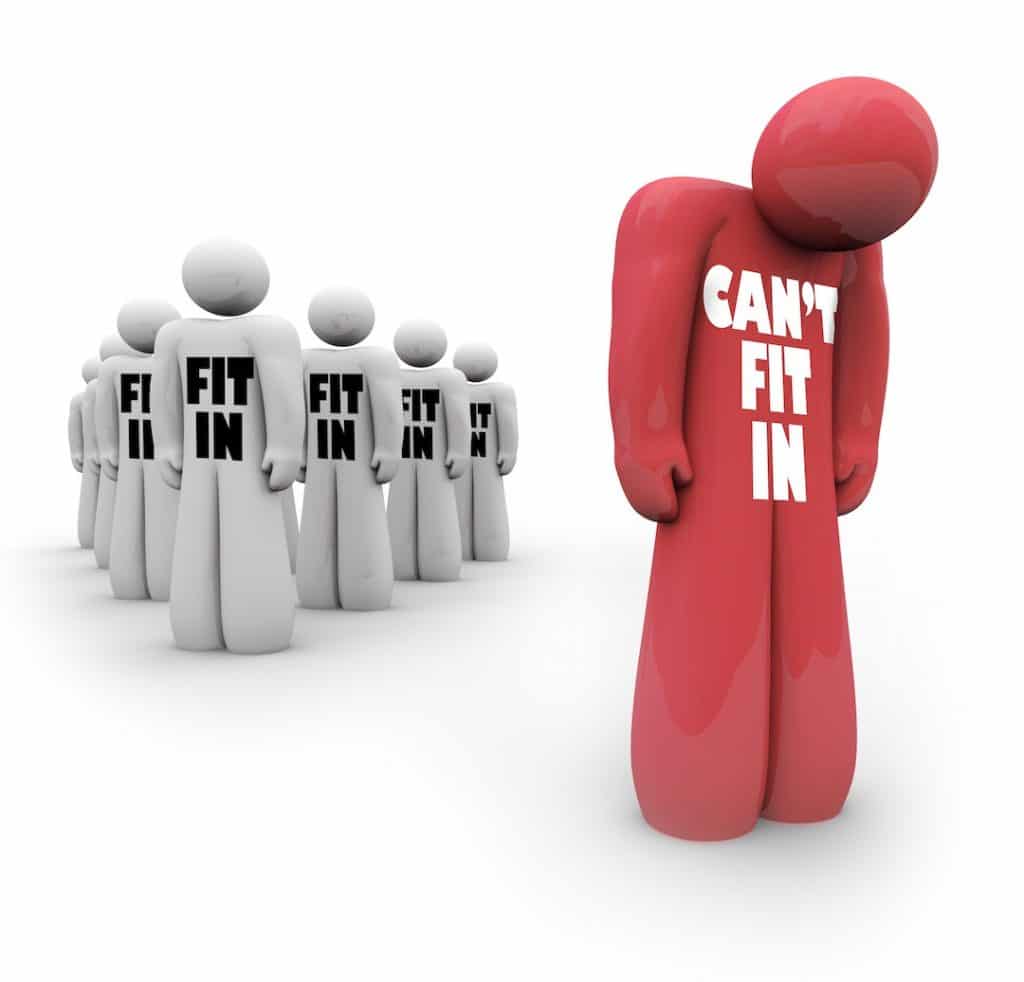 In society, we are sometimes left “marked” by the disenfranchised grief we are made to feel by our peers, our co-workers, and even those closest to us. We feel a questioning, an encroachment on our entitlement to grieve any length of time needed over anyone or anything we have lost. And perhaps this can be due to a limited emotional understanding of the kind of relationship we had with the lost individual or pet and possible around the circumstances their death.
In society, we are sometimes left “marked” by the disenfranchised grief we are made to feel by our peers, our co-workers, and even those closest to us. We feel a questioning, an encroachment on our entitlement to grieve any length of time needed over anyone or anything we have lost. And perhaps this can be due to a limited emotional understanding of the kind of relationship we had with the lost individual or pet and possible around the circumstances their death.
Unfortunately, our social peers as well as society dictating what is deemed as “acceptable grieving” and what is not affect us. It’s hard enough to lose someone we love. But to not be entitled to grieve openly and wholeheartedly is a whole other matter. It’s excruciating what the impact that one’s death has on us and is not acknowledged. Grief becomes disenfranchised when we don’t feel we have the right to grieve how we wish and as long as we feel. There’s an unspoken pressure to “get over it already,” to “move on,” to grieve in a certain way or certain length of time. The reasons perhaps is that it makes other people feel uncomfortable and do not know how to deal and handle such situations, as well as comparative judgment.
Internalizing Disenfranchisement
Due to the fact that disenfranchised grief takes place when we feel and hear expressions of sustained validation of our loss and grieving process, we feel like retreating and hiding our feelings to avoid talking about them. It’s easy to say to not care about what people say. But when it comes to our peers and colleagues, we are influenced given that these are the people you see and deal with every day. From a societal viewpoint, we internalize disenfranchisement. When someone says we’re not either grieving in the right way, or, we shouldn’t be grieving at all, there may be a place somewhere inside of us that could believe it. However, one’s truth about their grieving is on an emotional level. Nevertheless, we believe their views on grieving. Yet we feel as if no one understands us and some people may even feel guilty for feeling what they feel.
Here are several general categories of disenfranchised grief:
- The relationship is not recognized or acknowledged and can often be scorned by ignoring the griever: (same-sex partner, grandchild, ex-spouse, sibling, child through adoption, adult children, co-worker, neighbor, doctor/nurse, even celebrities, etc.).
- The loss is not acknowledged or given much value (a mother’s loss of child to adoption, etc., miscarriage, loss of job)
- The griever is excluded (left out of funeral rituals).
- Circumstances under which the death took place: (suicide, not being present, inability to prevent or do anything in that moment, and it used to be if one had AIDS, it was judged and the person was shunned from society, etc.)
- Ways individuals grieve (taking too long, comparisons to other more seriously deemed losses, impatience to avoid sustained comforting)
When grief isn’t acknowledged, because society says the relationship wasn’t that important or worthy of grief, we feel at a loss entirely. This could be the case when either your ex-husband/wife passes away, or a gay person’s partner becomes ill, or when society doesn’t consider the loss of a pet as serious as a miscarriage. These sort of cases – and others that you may know or imagine can prevent you from sharing your feelings. Thus you shut down and stay silent. Death is death, and no one can say, for example, that an ex-husband or an ex-wife does not deserve as much grieving anymore just because they’re no longer a couple. This is how others sometimes judge the personal value of a person’s death over another depending on status, making it either more or less important to justify the grief.
What are Disenfranchised Symptoms?
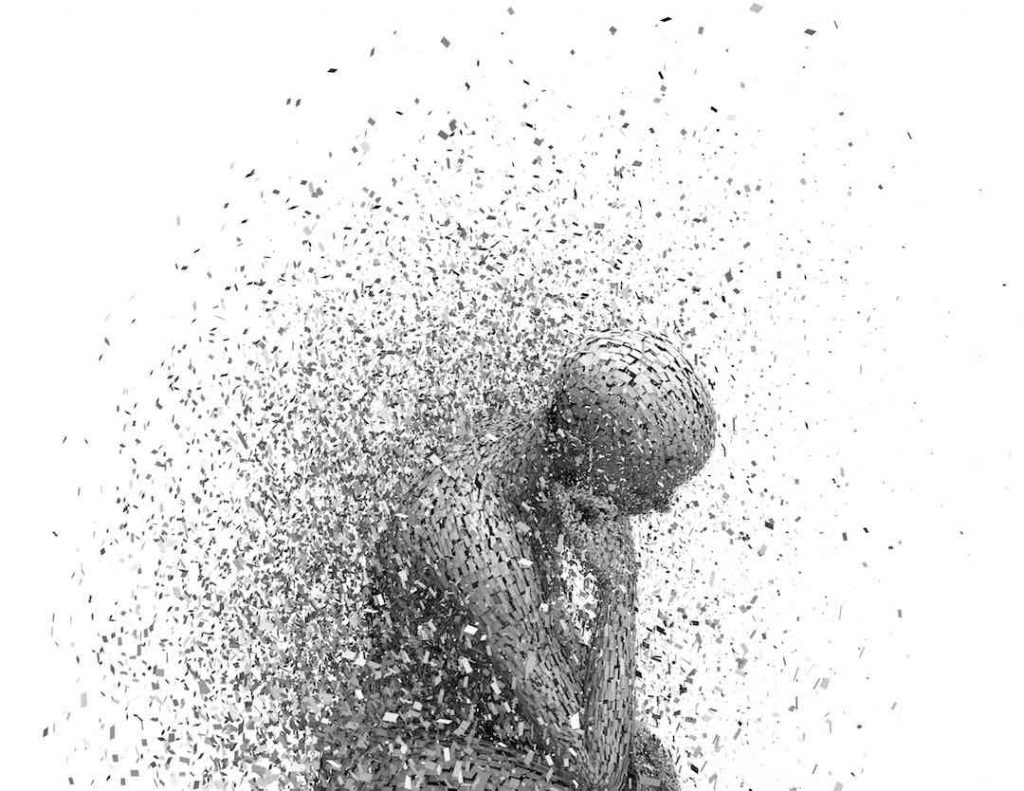
Symptoms of Grief
After the death of someone you love, there are common symptoms that people go through. Of course, these vary from person to person. Reactions to loss are individual and can encompass a variety of psychological and emotional effects.
It is not uncommon to experience periods of intense distress and feelings of: longing, crying, dreaming of your loved one, anger, denial, sadness, despair, insomnia, fatigue, guilt, loss of interest, confusion and disorganization, disbelief, inability to concentrate, preoccupation with thoughts of your loved one, fleeting hallucinatory experiences, meaninglessness, withdrawal, avoidance, over-reacting, numbness, relief, yearning, fear, shame, loneliness, helplessness, hopelessness, emptiness, loss of appetite, weight gain. Yes, these are a lot of symptoms, even for someone who is experiencing “normal grief”. But at least, you will be going towards the acceptance of the loss. Although you can never “forget”, these symptoms will gradually dissipate, especially as you resume your life routine of work, and just the routine of engaging in basic daily activities.
Symptoms of Disenfranchised Grief
If you are feeling shame, guilt or blame, and you want to hide your emotions, these could be symptoms of disenfranchised grief. You feel that you do not have the right or are less than entitled to grieve or whatever you’re grieving for isn’t that grieve-worthy. Society places labels on you, saying that you are not “entitled” to grieve any length of time due to severity or non-severity of the circumstances, or even because certain relationships are stigmatized by society. If you are grieving longer than society thinks you should, it’s labeled, “complicated grief”.
Sometimes the loss could be so unbearable and debilitating that even when time does pass, it can lead to “persistent complex bereavement disorder,” This is when your painful emotions are so long lasting and severe, you have trouble recovering from the loss and resuming your own life. When this happens, it is important to consult with a doctor to seek possible treatment to help you come to terms with your loss and reclaim a sense of acceptance and peace.
Disenfranchised Grief Examples

With disenfranchised grief, society doesn’t accept your reason for grieving, because you are not living up to “accepted” societal rules. People may think that the loss you have experienced shouldn’t be mourned to any extent.
Society’s Discomfort of Watching Someone Grieve
In general, people do not feel comfortable watching someone grieve or feel sad. So they tend to minimizing their grief as something they need to “get over.” And when others establish definitions of what is “proper” or “improper,” mourning techniques are yet another way of excluding certain individuals, and another way of disenfranchising them and their grief. I think what happens is society downplays grief by not recognizing the relationship between the one who died and the survivor. Nor do they see the need to grieve as acceptable. An essential part of our life experience to help reestablish emotional balance, grieving has been given a bad rap.
Loss is part of living and there are a multitude of ways we feel loss. Each loss carries its own circumstance and beliefs and each loss effects individuals totally different. We know that we’re not here to judge HOW someone grieves or WHY they grieve or for how long. We need to be here to hold the space for them to have their experience and accept their timing, not ours.
Comparing the Right to Grieve
Another negative connotation is when people “compare” their right to grieve with someone else’s. Someone told me about a grief support group they attended. One woman kept asking everyone as they went around the circle how many years they were married. The grief counselor noticed when they got to her in the circle that she was married the longest at 53 years. Because of this, she felt as if her loss was more significant than everyone else’s who was married less time and that she had the right to suffer the most. Another one was when someone who lost their neighbor was grieving and someone else in the group discounted their loss as “only” a neighbor?
Unrecognized Grief
The worst part of disenfranchised grief is that the griever not only has to struggle with their loss. But they feel they have to defend the depth of their sadness to those around them and may even feel more isolated, confused and alone. These kinds of grievers don’t even get any recognized time off from work, because their loss is not established as a good enough reason.
Did you ever lose a dog, and someone came up to you and said, “It was only a dog,” demonstrating how unimportant these losses are to most people? “Oh, you can get another dog,” they would say without hesitation. There are not even sympathy cards to speak of. And people often comment about someone you lost and cared by saying that doesn’t fit into the acceptable category. People can be dismissive and hurtful and you might hear them say, “Be glad you’re still alive.”
Not everyone feels disenfranchised over the losses mentioned above either. So don’t think you are abnormal if you don’t experience these feelings. You may be one of the lucky ones who has a fantastic support system that acknowledges all of the losses you have had and allows you permission to grieve that loss, even if it doesn’t fit into any category. Some of the dynamics with disenfranchised grief are internal and may be in your control. Yet there are other external circumstances that you may have no control over. You afford the flexibility to change the way you view it.
How to deal with Disenfranchised Grief

After studying her terminally ill patients in the hospital where she worked, Elisabeth Kubler Ross, author of On Death and Dying, identified five emotional phases that they went through: Denial, Anger, Bargaining, Depression and Acceptance (not in any particular order). She, along with David Kessler, one of the world’s foremost experts on healing and loss, expanded her model to include any form of personal loss. Among them are the death of a loved, the loss of a job or income, major rejection, the end of a relationship or divorce, drug addiction, incarceration, the onset of a disease or an infertility diagnoses and even minor losses, such as a loss of insurance coverage. When one recognizes that everyone goes through these phases during any grieving stage, whether anticipatory or actual, grievers began to feel they weren’t crazy and that what they were experiencing was “normal”.
Disenfranchised grief can have multiple effects such as depression, emotional disturbances, withdrawal from society, psychosomatic illnesses and low self-esteem and difficulty in forming healthy relationships. People with disenfranchised grief often have trouble in coping with subsequent losses. Oftentimes, disenfranchised grievers cut off sources of support, forcing them to suppress their grief and causing their problems to magnify. Due to the fact that disenfranchised grief is generally grief that is not openly acknowledged, socially accepted or publicly mourned, there are things you can do to claim your right to grieve and get support:
- Begin by recognizing there is nothing wrong with you. Your feelings are legitimate.
- Find people who will understand, by attending bereavement support groups.
- Be honest about how you feel and if someone says something that is hurtful, let them know.
- Develop a ritual or ceremony to commemorate the person’s passing.
Disenfranchised Grief: Pointers and Help Rituals
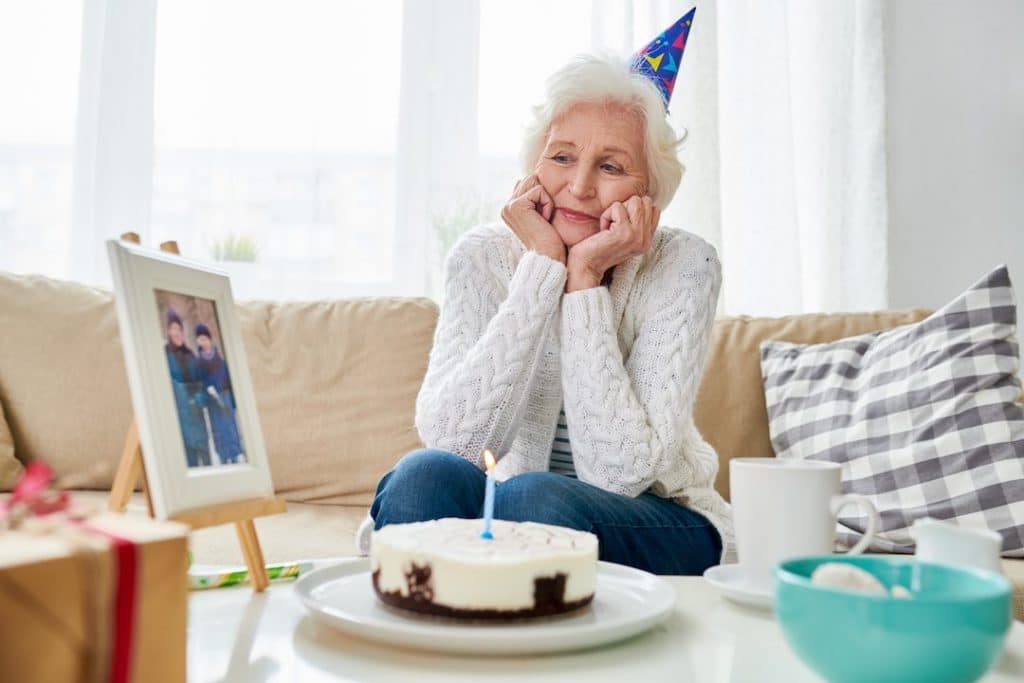
Harvard Study on Grieving Rituals
Researchers Michael I. Norton and Francesca Gino at Harvard Business School conducted a study published in the Journal of Experimental Psychology. They found that some mourners are more emotionally resilient than others. Those who overcome their grief more quickly all had something very important in common. Following the loss, they performed what the researchers refer to as “rituals” in the study. These rituals didn’t necessarily have to be typical, public rituals as funerals, wearing black for a certain period of time or religious customs like, “sitting Shiva” in Judaism (a period of seven days when the bereaved are visited by guest). These rituals were private, personal and performed alone.
One woman, who lost her boyfriend after breaking up, returned alone to the place they broke up each month to help cope with her loss. Another person burned all their photographs in the place they first met. You might think these types of rituals would be agonizing. But another study showed that those who conducted rituals were less sad over time with less grief.
When someone we love dies and our grief is considered acceptable according to societal “rules”, we are free to remember them through creating public rituals with our friends and family. These include having a funeral, a celebration of life or a memorial, among other forms of rituals. They are deliberately-controlled gestures that help people get through their grief by counteracting the chaos that follows the loss.
When we are experiencing disenfranchised grief for the reasons I mentioned above, we are often not able to create a public ritual. We often hide our emotions in private and the only way we feel “in control” is to conduct a private ritual.
Shamanic Fire Ceremony for Disenfranchised Grief
This reminds me of a friend of mine who had a boyfriend, Steve, for 5 years. Steve was separated from his ex-wife for 7 years. Steve didn’t divorce his wife for purely monetary and health insurance reasons. His “ex-wife” had been living with her boyfriend since she and Steve separated. Unfortunately, when Steve died, my friend was not welcome to his funeral, so she had to grieve in private. She was grieving in silence and alone for many years. I suggested we do a shamanic fire ceremony, where she could process her disenfranchised grief. She wrote some things, gathered some of his writing and we burned them in the fire, transmuting the energy. She experienced a profound healing and was able to let go of shame and other feelings she was harboring alone. When we lose someone like this, it is devastating.
Accepting Loss and Grieving as Part of our Human Experience
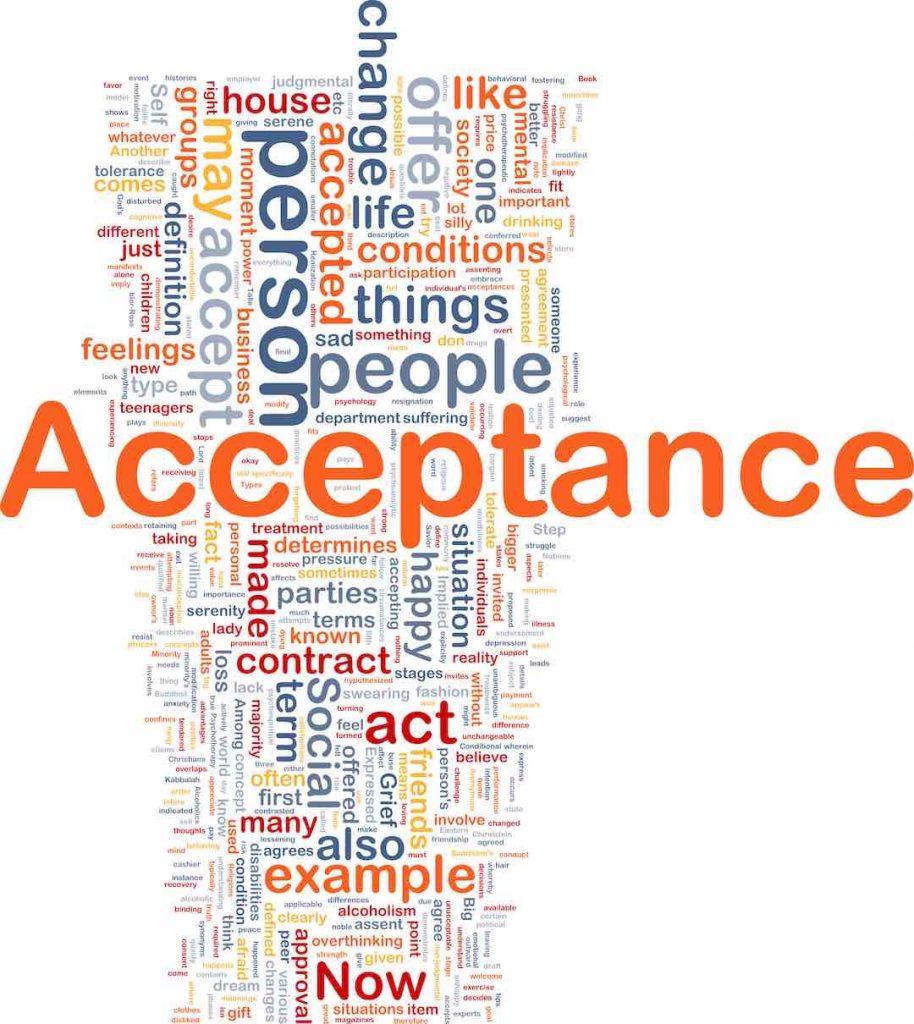
We’ve all heard the expression that time heals all wounds, and that is true. But disenfranchised grief actually hinders grief resolution, causing grief to continue for a very long time. I remember being 13 years old and when I saw John Kennedy get shot and die on TV, I cried like a baby. I was only 13 and felt the sting of the loss for this nice man, for what he stood for, for our country, for the loss of innocence, for the loss of what could be, for the loss of idealism and sense of humanity, for kindness lost. Rationally, I didn’t “have” to mourn or grieve him. Yes, it was accepted that we, as United States citizens would be impacted by Kennedy’s death. But many of my friends thought I was taking it too far.
Being a national trainer for The Twilight Brigade, I had a veteran in our training who lost his leg in the Gulf War. The grief he felt for his loss was warranted. But others might see it as disenfranchised grief because he was still alive. Losing a body part is losing something near and dear to us.
Conclusion
Most of us have, at one time or another, lost someone/something we loved. For the most part, we probably got the support we needed from others. But for many people, due to the circumstances and relationships we have discussed in this article, they have not often gotten the understanding and acceptance that they deserved. In fact, as we have learned, disenfranchisement involves more than merely overlooking or forgetting to take note of certain types of bereavement and grief. People who are viewed as disenfranchised grievers are not free to experience or express themselves. That’s because it is considered prohibited in the eyes of many and not supported by society. Disenfranchised grief applies to relationships, losses and certain forms of death, as well as the process of coping or managing loss in a timely way.
Society Needs to Understand Disenfranchised Grief & Start Caring
Expanding our understanding of the concept of disenfranchised grief can contribute to improving our appreciation. This reminds us of the sensitivities that are needed to keep in mind, so we do not devalue the important aspects of the experiences of bereaved persons. A caring society ought not to incorporate, either formally or informally, thoughts, attitudes, behaviors or values that communicate to bereaved persons inappropriate or unjustified messages, communicating to bereaved persons inappropriate or unjustified messages such as:
“Your relationship with the deceased person did not count in our eyes,”
“Your loss was not really a significant one,”
“Your grief is not acceptable to us in some ways,”
“Your grief is in itself a symptom of psychological disorder or lack of mental health,”
“Your mourning has lasted too long,” or
“You should be over this by now.”
A caring society ought to respect the complexities and individuality of each bereavement experience. A caring society ought to appreciate that healthy grief honors cherished relationships. Society should understand that constructive mourning is essential for those who are striving to live in productive and meaning ways after a loss. When you value the feeling of loss, you value life itself and you begin to live again.
It’s your life. Enjoy the journey. And remember to bring love into everything you do.

